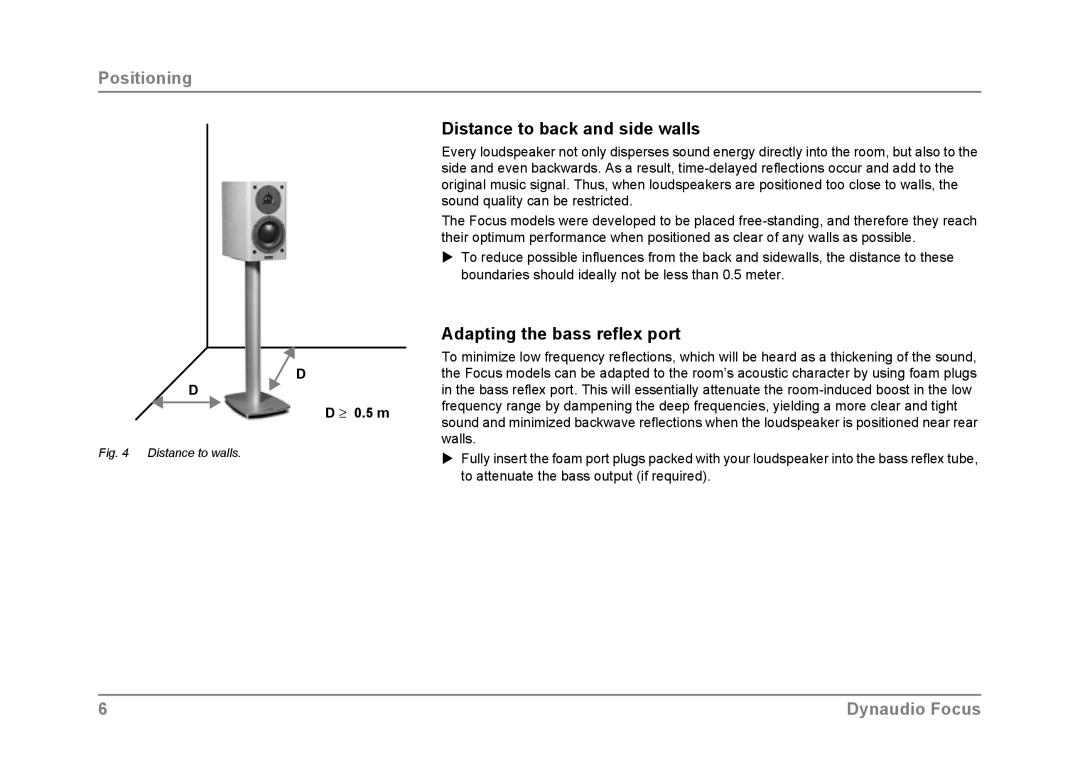Focus specifications
Dynaudio Focus represents a significant innovation in the world of high-end audio, offering a harmonious blend of advanced technology and elegant design. Renowned for their commitment to creating speakers that deliver pristine sound reproduction, Dynaudio has embedded several cutting-edge features in the Focus series, catering to audiophiles and casual listeners alike.At the core of the Dynaudio Focus speakers is their proprietary driver technology. Each speaker is equipped with bespoke drivers that produce a detailed and accurate sound across the entire frequency spectrum. The customized woofers and mids utilize a lightweight yet rigid construction, enabling them to handle high power levels while minimizing distortion. These drivers are engineered to create a natural and immersive audio experience, ensuring that vocals, instruments, and even the subtlest of cues are captured flawlessly.
One standout feature of the Focus series is the incorporation of DSP (Digital Signal Processing) technology, allowing for precise control over the audio output. This technology optimizes speaker performance based on the room’s acoustics, ensuring that every listener experiences sound as intended by the artist. The integration of DSP also allows the user to customize sound profiles, tailoring the listening experience to individual preferences.
The Dynaudio Focus speakers are also equipped with wireless capabilities, making them an excellent choice for modern homes where connectivity and ease of use are paramount. With built-in support for high-resolution streaming over Wi-Fi, users can enjoy their favorite music in unparalleled quality without the clutter of wires. The intuitive app allows for simple setup and control, turning a smartphone or tablet into a powerful music hub.
Aesthetically, the Focus series maintains Dynaudio's commitment to elegance. Available in various finishes including wood veneer and high-gloss lacquer, the speakers not only sound extraordinary but also serve as stunning pieces of furniture. The sleek design seamlessly integrates into any home décor, highlighting the brand’s emphasis on marrying function with form.
In essence, Dynaudio Focus speakers stand as a testament to the brand’s legacy of exceptional sound engineering. With their advanced driver technology, intelligent DSP, wireless connectivity, and sophisticated design, they elevate the listening experience to new heights, making them a worthy investment for anyone serious about audio quality. Whether you're an experienced audiophile or simply someone who appreciates great sound, the Dynaudio Focus series is poised to deliver an unforgettable auditory journey.

